
How Many Litres of Water Is It Healthy To Drink a Day?
Staying hydrated is essential for our overall health and well-being. Water makes up about 60% of our body weight and plays a crucial role in various bodily functions, from regulating body temperature to transporting nutrients and eliminating waste. However, determining the optimal daily water intake can be a bit tricky, as it varies depending on individual factors. In this blog post, we'll explore the recommended daily water intake, the importance of electrolytes, and tips to help you stay hydrated throughout the day.
Understanding Water Requirements
The basic hydration guidelines suggest that adults should aim for around 8 cups (64 ounces or 1.9 litres) of water per day. This is often referred to as the "8x8 rule" - eight 8-ounce glasses of water daily. However, this is a general recommendation, and your individual water needs may differ based on various factors, such as:
- Body size and weight: Larger individuals generally require more water than smaller individuals.
- Age and gender: Men typically need more water than women, and water requirements tend to decrease with age.
- Activity level: People who are physically active or live in hot climates may need to drink more water to replace the fluids lost through sweat.
- Health conditions: Certain medical conditions, such as diabetes or kidney problems, may affect your water needs.
To determine your specific daily water intake, a more accurate calculation is to multiply your body weight (in pounds) by 0.5 to 1. This will give you the recommended number of ounces of water you should aim to drink per day. For example, if you weigh 150 pounds, your daily water intake should be between 75 and 150 ounces (2.2 to 4.4 litres).
Signs of Proper Hydration
Monitoring the color of your urine is a simple way to gauge your hydration levels. Pale yellow or clear urine is a good indicator that you're well-hydrated, while dark yellow or amber-colored urine may signify dehydration. Additionally, other physical symptoms of proper hydration include:
- Moist lips and tongue: Dry mouth or tongue can be a sign of dehydration.
- Adequate tear production: Dry eyes or the inability to produce tears can indicate dehydration.
- Regular bowel movements: Dehydration can lead to constipation.
- Minimal fatigue or headaches: Proper hydration can help prevent these common symptoms of dehydration.
The Role of Electrolytes
Electrolytes, such as sodium, potassium, and chloride, play a crucial role in maintaining proper hydration. These minerals help regulate the balance of fluids in your body and facilitate the absorption of water. When you're dehydrated, you may also lose electrolytes, which can lead to symptoms like muscle cramps, fatigue, and dizziness.
To replenish electrolytes, you can incorporate electrolyte-rich foods into your diet, such as bananas, avocados, leafy greens, and nuts. You can also opt for electrolyte-infused water or sports drinks, but be mindful of their sugar content.
Choosing the Right Water Container
The type of water container you use can also impact your hydration habits. Water filter jugs, for example, can encourage you to drink more water by providing clean, filtered water right at your fingertips. Lightweight, reusable water bottles, especially those made of glass or stainless steel, can also make it easier to stay hydrated throughout the day.
Tips for Increasing Daily Water Consumption
Staying hydrated can be a challenge for some, but there are several strategies you can implement to ensure you're drinking enough water:
- Set reminders: Use your phone, smartwatch, or calendar to set regular water drinking reminders throughout the day.
- Incorporate water-rich foods: Fruits and vegetables like watermelon, cucumbers, and tomatoes can contribute to your overall hydration.
- Carry a water bottle: Keep a reusable water bottle with you at all times, and make a conscious effort to sip from it regularly.
- Infuse your water: Add slices of lemon, lime, or cucumber to your water to make it more appealing and encourage you to drink more.
- Track your intake: Use a water tracking app or simply mark down your water consumption to ensure you're meeting your daily goals.
Conclusion
Staying hydrated is essential for maintaining optimal health and well-being. While the recommended daily water intake is generally around 8 cups (1.9 litres), your individual needs may vary based on various factors. By understanding your hydration requirements, monitoring your electrolyte balance, and implementing practical strategies, you can develop healthy water drinking habits that will benefit you in the long run. Remember, proper hydration is the foundation for a healthier, more vibrant lifestyle.
-
Original price $139.95Original price $139.95 - Original price $139.95Original price $139.95Current price $89.00$89.00 - $89.00Current price $89.00
Biocera Antioxidant Alkaline Jug 1.5L
Biocera Alkaline Jug Features: It alkalises the water added to it, typically raising the pH from 7.5 to 9.5 It changes the ORP (Oxidation Reduct...
View full detailsOriginal price $139.95Original price $139.95 - Original price $139.95Original price $139.95Current price $89.00$89.00 - $89.00Current price $89.00Sold out -
Original price $149.00Original price $149.00 - Original price $149.00Original price $149.00Current price $139.00$139.00 - $139.00Current price $139.00
Alkanatur Alkaline Ionised Antioxidant Jug
Introducing the only Alkalizing Pitcher 100% made in Spain. Endorsed by multiple university studies Alkanatur is the most certified water pitcher i...
View full detailsOriginal price $149.00Original price $149.00 - Original price $149.00Original price $149.00Current price $139.00$139.00 - $139.00Current price $139.00Save 7% -
Original price $89.00Original price $89.00 - Original price $89.00Original price $89.00Current price $75.00$75.00 - $75.00Current price $75.00
Biocera Antioxidant Alkaline Water Jug Filter Set 3 pcs -set
Composition: 1.Coarse pre filter: particle pre filter hindering visible particles to enter the filter bed. 2.PP pre filter, a fine polypropylene m...
View full detailsOriginal price $89.00Original price $89.00 - Original price $89.00Original price $89.00Current price $75.00$75.00 - $75.00Current price $75.00Sold out -
Original price $178.00Original price $178.00 - Original price $178.00Original price $178.00Current price $139.00$139.00 - $139.00Current price $139.00
Biocera Antioxidant Alkaline Water Jug - Filter Set of 2 Total of 6 filters
Buy 2 sets for $139 (6 filters) Composition: 1.Coarse pre filter: particle pre filter hindering visible particles to enter the filter bed. 2.PP p...
View full detailsOriginal price $178.00Original price $178.00 - Original price $178.00Original price $178.00Current price $139.00$139.00 - $139.00Current price $139.00Sold out -
Alkaline Jugs


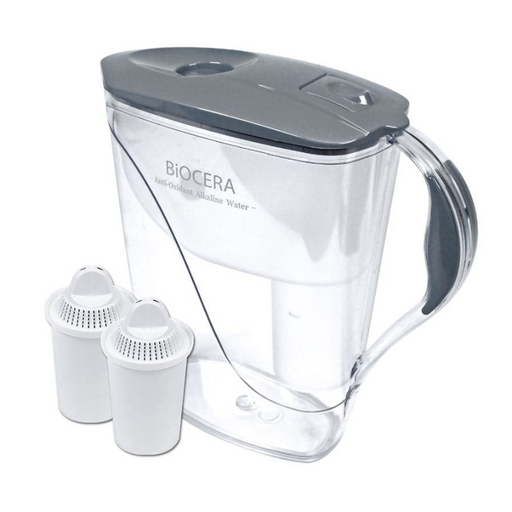
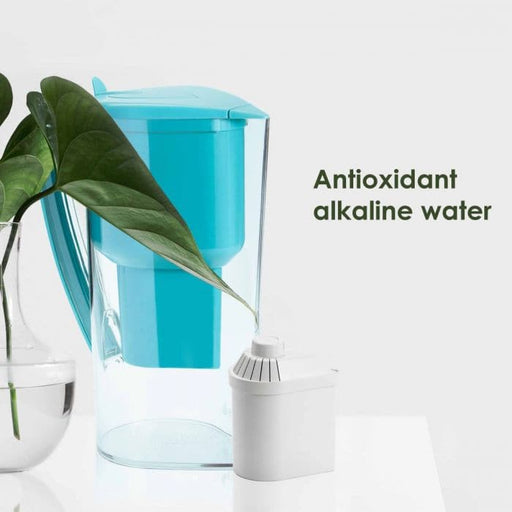
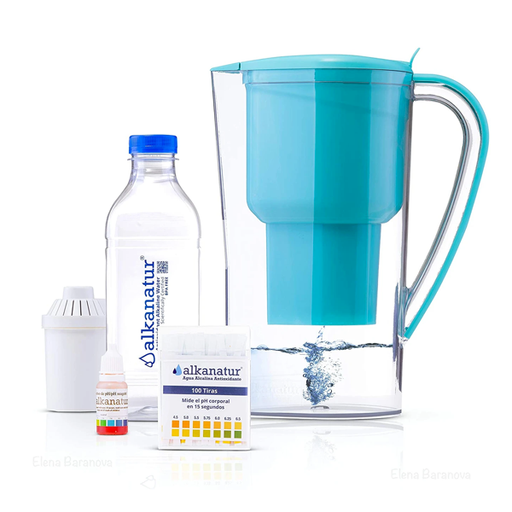
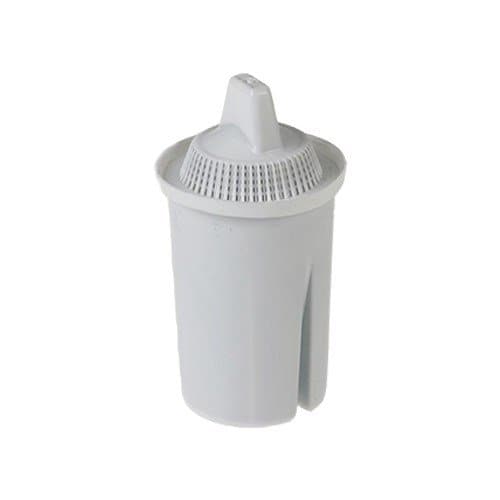
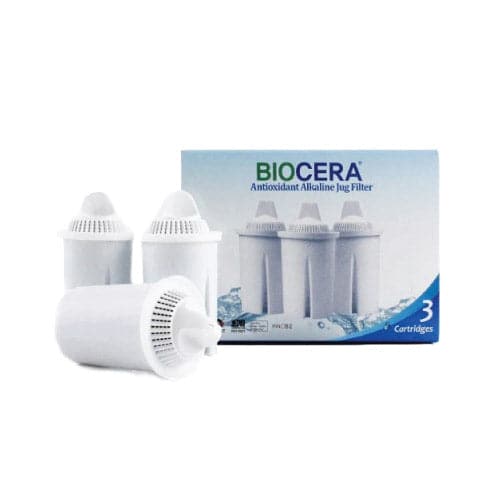
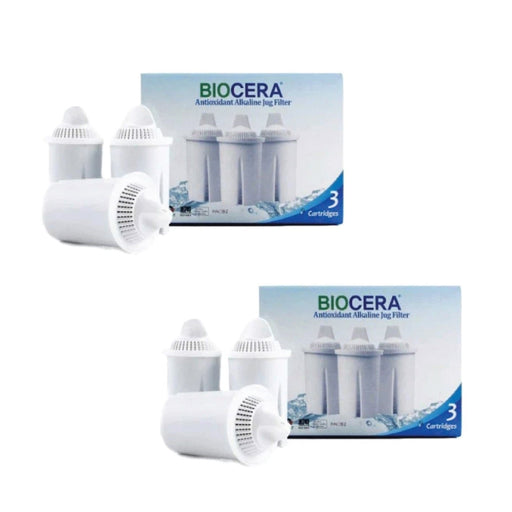
Leave a comment